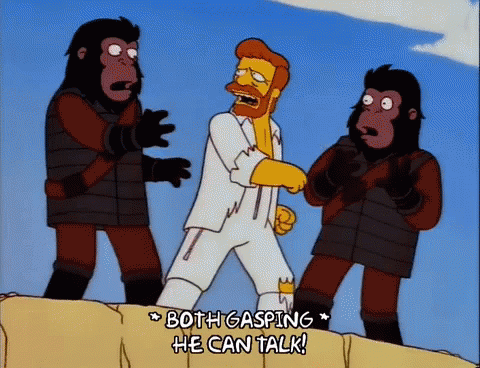I can vouch for this, but I have to admit most of the time it has more to do with the words that surround the technical vocabulary than the vocabs themselves. In Computers, Spanish took most vocab from french, so we say Ordenador instead of Computadora, and Programa instead of Aplicación – from the french ordinateur and programme – ; We also have more translated words, we can say “mouse” and “link” but is more common to say “ratón” and “enlace” – also I will kill anyone that says “clickar” and specially “linkar” ← THAT’S NOT HOW SPANISH WORKS!!! Finally some words got different translations. Latin american usually does more direct translations while we may try to preserve the meaning: Placa Base (base board) instead of Tarjeta Madre (mother card).
Anyway I came here to post this:
And this video caught my attention because the other day was discussing with @chgoliz about that I though that “stella splendens in monte” (a medieval song from my area) first verse makes more sense if is pronounced “estella esplendens”, as all silabes then fit better in the song.
Obviously I’m wrong (I mean, all respected musicologists i know agree is sung as ste-lla not es-te-lla) but this video shows that basically this kind of “assumption” is ingrained in my father’s tongue (my mother’s tongue is catalan) so i have to “train” the word to forget my assumptions ![]()
Canadian English; “eh”. Usually thought to be merely an interogative, but it’s exact meaning is hard to pin down.
I used “eh” as an interrogative, or as way of softening a declaration; a very abbreviated “wouldn’t you agree?” The latter use is more of a rhetorical question than a legit interrogative. It’s subtle, eh?
I feel like lots of dialects have that, yeah? They just use different words, innit? And maybe some sound a bit less polite and more like an old time gangster, see?
I get that, ya know?
Ehhh!
Corporate buzzwords and jargon:
At some point, we might just see these represented by a string of emojis… ![]()
![]()
And not just in English, gell? It’s common in German, oder? And I’m sure in other languages as well, stimmts? French, for example, non? And others as well, n’est-ce pas?
She’s brilliant.
Ha! I was just coming to post that. The title of the video is weird, because (a) that’s not Elizabethan English, and (b) nowhere in that video does anyone ever describe that accent as Elizabethan. I looked it up on Wikipedia, and linguists do agree that it has its roots in Early Modern English from around 1650-1750, which makes sense because that’s around the time that area was colonized, but that’s not the Elizabethan period.
I guess it just sounds cooler to say “Elizabethan”?
Everything named Elizabeth is better, by definition.
![]()







